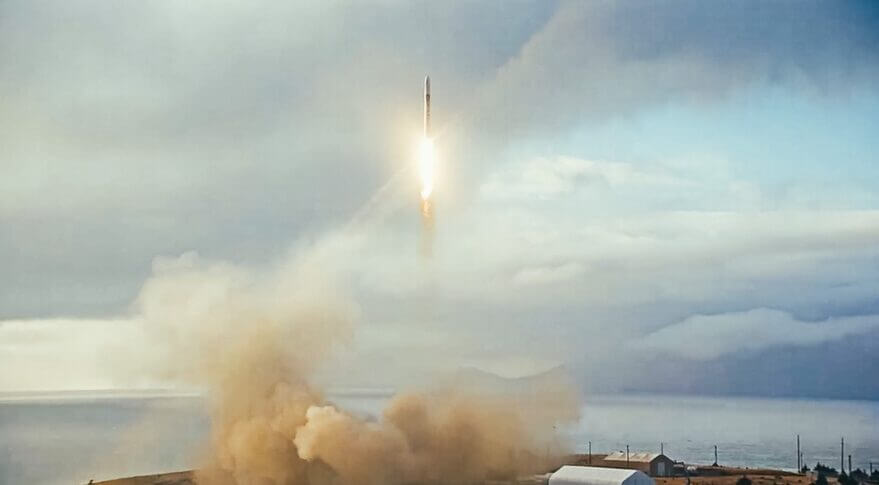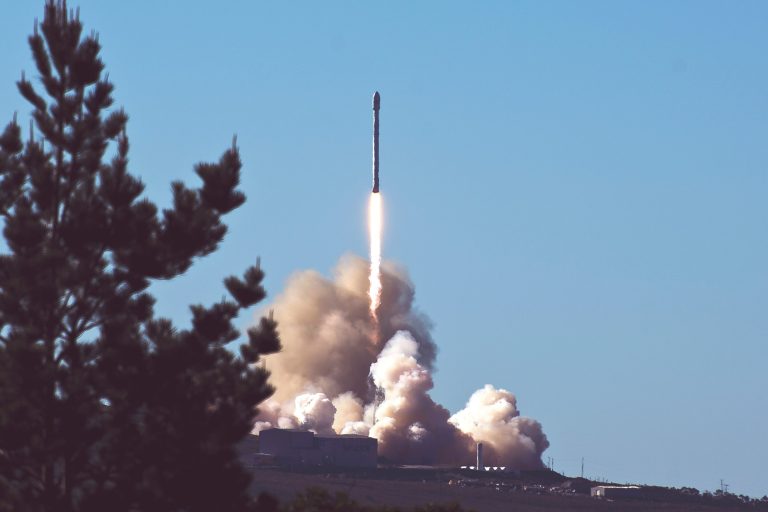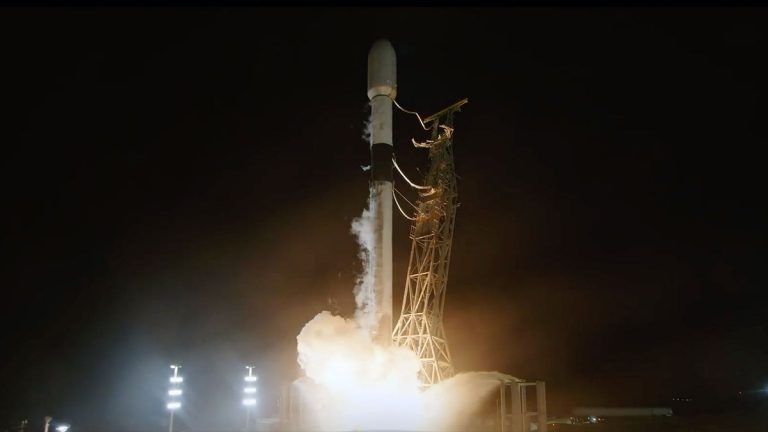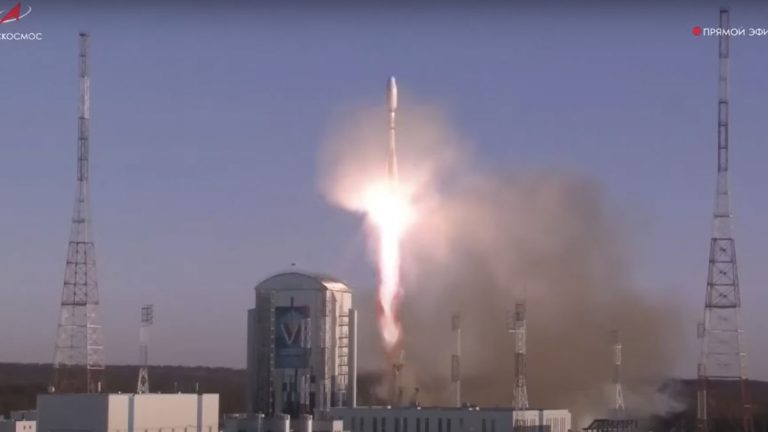
ABL Space Systems blames RS1 launch failure on loss of power (Image Credit: Space News)
WASHINGTON — ABL Space Systems says a power failure, possibly linked to a fire in the first stage of its RS1 rocket, caused the inaugural launch of the vehicle to fail last week.
In a statement posted to social media Jan. 18, ABL Space Systems provided a detailed timeline of the first flight of the RS1 small launch vehicle Jan. 10 from Pacific Spaceport Complex – Alaska on Kodiak Island. The company initially said that the launch failed when its nine first stage engine shut down simultaneously after liftoff, causing the vehicle to fall back to the pad and explode
In its new statement, ABL said the that at T+10.87 seconds, “Stage 1 suffered a complete loss of power.” That deenergized propellant valves, causing the nine E2 engines to shut down at an altitude of only 232 meters. The rocket, deprived of thrust, coasted upward for 2.63 seconds before falling, hitting the ground less than 20 meters from where it lifted off.
At the time of impact the rocket still had about 95% of its propellant on board, “creating an energetic explosion and overpressure wave that caused damage to nearby equipment and facilities.” That damage included the launch mount for the rocket as well as tanks, communications equipment, and a fabric hangar containing integration equipment. ABL said all the debris was contained within a pre-designated hazard zone, and no people were in the area at the time of impact.
The company is still investigating the launch failure with oversight by the Federal Aviation Administration, which licensed the commercial launch. The company said it is looking at data that suggests there may have been a fire in the engine bay, including “off-nominal pressure spikes and rises in temperature” a few seconds after liftoff as well as visual evidence of fire or smoke.
“Shortly before the power loss, a handful of sensors began dropping out sequentially. This evidence suggests that an unwanted fire spread to our avionics system, causing a system-wide failure,” the company stated.
ABL added that if the investigation fails to identify a single root cause for the failure, it will examine all “undesirable conditions” that could have contributed to the failure in some way and determine how to best address them.
The company did not give a timeline for completing the investigation and preparing for a second launch attempt. It did state that it has completed both stages for the second RS1 rocket, which are ready for testing, and it will repair the damaged pad while the investigation continues. “Pending the results of our anomaly investigation, we’ll be prepared to share more on the expected timeline for these efforts.”
ABL has raised several hundred million dollars from venture capital firms, including $200 million in October 2021 in a round that valued the company at $2.4 billion. Lockheed Martin is both a strategic investor and a major customer, having signed a contract in April 2021 for as many as 58 RS1 launches through the end of decade. It also selected the RS1 to perform its “U.K. Pathfinder” launch from the SaxaVord Spaceport in the Shetland Islands later in 2023.








